|
“I don’t know why it is that some of my best days on the river have begun with waking alone in the darkness, truly alone, with that deep empty feeling – that hollow aloneness that you cannot shake free of. It had been some time since my service in the Marines, but years later, the ghosts came to call, and I found myself afraid to sleep, knowing they would come back. A doctor helped me to chase away the ghosts, but the feeling of emptiness remained. I guess sometimes surviving is your punishment. So, you stand in the river, facing upstream with the water rushing down upon you as if it could somehow fill the hollow emptiness – and somehow, it always does. So, it was one morning. I stood there, without even casting and with no trout rising, and as the water rushed past me, I knew it was washing my burdens behind me, swirling them downstream like autumn leaves.” – excerpt from "Casting Forward: Fishing Tales from the Texas Hill Country" by Steve Ramirez At its core, fly fishing requires you to be completely present, which is why movie director Joshua Caldwell – the creative force behind trending Netflix film “Mending the Line” – works so well to interrupt the trauma loop for those returning from the military, first responders and others who are struggling with anxiety, depression and other mental health issues. “People can get a benefit out of spin-fishing, but with that, you can sit on the bank of a river in a chair, throw that spoon out there, reel it in and repeat almost on auto pilot,” he said. “The difference-maker in fly fishing for a lot of people is that you have to go to the trout. You have to step into the water. You have to feel that water pushing against your legs. Your stabilizers are firing on all cylinders to keep you upright. “You’re trying to focus on the cast because you have to get the cast right – you can’t just throw it out there because it is never going to work. And once you finally get the cast out there, your drift might only be six inches, so you have to watch that like a hawk. Then you have to pick that up and throw it again. So every step of the way, you have to be present.” Which makes it basically impossible to think about anything else.
“I had this fascination with fly fishing, probably because of (the movie) ‘A River Runs Through It’ but never did it before. I did spin fishing with my grandfather and salmon trips to Alaska,” said Caldwell. “So my parents got me a two-day Orvis class and I was hooked immediately.”
So several years later, when a script for a fly-fishing movie crossed his desk, Caldwell couldn’t pass up on the opportunity. “I understood the power of the sport to create calm and present-ness,” he said. “While I don’t have a major traumatic experience, as someone who lives in my head, getting out on the water is a cleansing day, so I can only imagine how powerful it can be for someone who is going through something much bigger than me.” Of the main cast members in the film, only Perry Mattfeld had any fly-fishing experience, according to Caldwell. “She told me she had gone out only one time before and that it didn’t count, but I said it was one more day than anyone else,” Caldwell said, adding that since this was an independent movie without a huge budget, the cast didn’t have big salaries and there wasn’t much time for training before the film. “In a movie like ‘A River Runs Through It’ actors like Brad (Pitt) and Craig (Sheffer) and those guys were doing lots of fly fishing for a couple of months before filming. We didn’t have that. We had to get these actors ready very quickly,” Caldwell said. “Of course, no where in this movie are we presenting these guys as perfect casters either, so that gave us some leeway.” Caldwell said that Perry Mattfeld really took to fly fishing during the filming – a few of them would go fishing during off time. And Brian Cox connected with the rhythmic back-and-forth aspects of casting. But overall, Caldwell’s main focus was getting his actors to connect with the deeper experience of being present. “Once you are on the river, in this picturesque Montana landscape and casting, it is impossible not to feel it,” he said. “It was important to me, before we shot this film, regardless of whether they caught a fish or not, for each of these actors to know what it was like to stand in a river, to feel the cast, to look at the water and read it because it is all so integral to the process and what makes it so beneficial for healing.” Taking action Once people make the connection to the water, Caldwell is also hoping they also understand the importance of protecting our rivers and the aquatic ecosystems they sustain. “We should be taking care of our natural resources for no other reason than they are there. Really, it’s that basic,” he said. “We can come up with all sorts of other reasons – even selfish ones – to do that, but at its most basic, this is it. This is our planet. Having these things exist as natural as possible is incredibly important.” While nature can be beneficial in many ways, including to someone’s state of mind and mental health, the lack of it can move people in the opposite direction, Caldwell warns. “To lose those sort of natural resources is to lose a modality by which we can heal, be better and maintain mental health – regardless if that is fly fishing or forest bathing, there are clear benefits to spending time in nature,” he said. “Nobody wants to stand in a river filled with sewage and that isn’t going to help your mental health at all.” Caldwell feels that society today suggests that we need nature more than ever. “People are worse off than they were. Mental health is insane – especially among kids. There is such a prevalence of being on screens and not being outdoors,” he said. “Kids are not enjoying free play out in the woods, and that is a huge loss. I grew up on the brink of the wilderness, leaving at nine in the morning and was back at six, playing all kinds of things in the woods. That is one of the reasons we moved back to New York, to give our kids more experiences in nature.” Poetic punctuation As a way to help illustrate the importance of both the therapeutic and conservation elements in “Mending the Line,” Caldwell weaves in excerpts from Steve Ramirez’s book “Casting Forward: Fishing Tales from the Texas Hill Country” – punctuating emotional scenes with poetic phrases from an author known for conservation of clean water resources and for overcoming adversity from his time serving as a Marine through his time fly fishing. “The original script used quotes from (Ernest) Hemingway and another author, but to use these sort of things, you need to get clearance from the author and getting clearance from Hemingway’s family in time for this project was out of the question,” said Caldwell. However, his parents came across “Casting Forward” through an Arizona fly fishing trip and got a copy for him. “I found his writing poetic and beautiful and fit the film so well,” said Caldwell. “We reached out, said which passages we were interested in using in the movie. He said he was honored as long as his words would be represented well. He’s become a good friend and I’ll be featured in his new book. He came up to the Catskills fishing around with me and some of my buddies up here.” Among the excerpts used in the film is the following, where the author, Ramirez, shares a life lesson learned metaphorically through trout: “There is a great deal about living that trout can teach us. They teach us to keep swimming even in a steady current. Trout know that if they stop swimming, they cease to be trout and begin to become debris, floating without purpose wherever the current may take them. Trout know that if they keep swimming, facing into the current, perhaps in the eddy of a rock, all that they need to truly live will eventually come to them. I learn a great deal from trout.” Learn more about Mending the Line at its website. You can watch the film "Mending the Line" on Netflix at this link. Contact director Joshua Caldwell directly via email by clicking here. Learn more about Steve Ramirez, "Casting Forward" and his other books at this link.
0 Comments
Leave a Reply. |
AuthorsRiverkeeper John Zaktansky is an award-winning journalist and avid promoter of the outdoors who loves camping, kayaking, fishing and hunting with the family. Archives
July 2024
Topics |
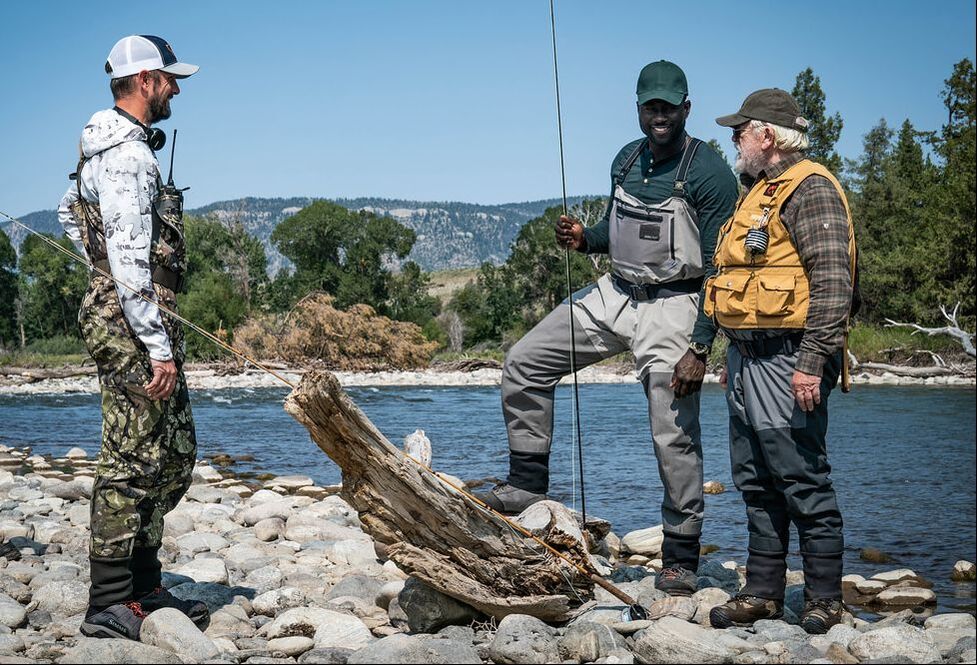
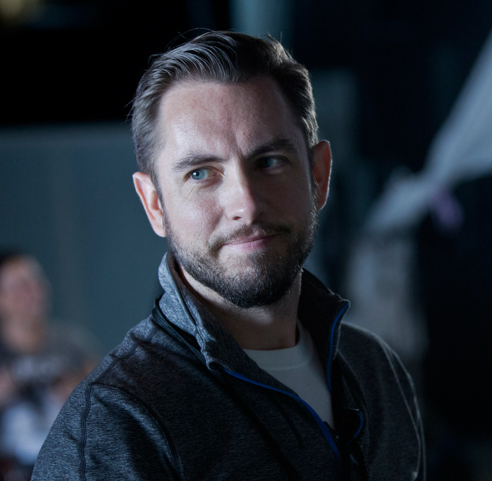
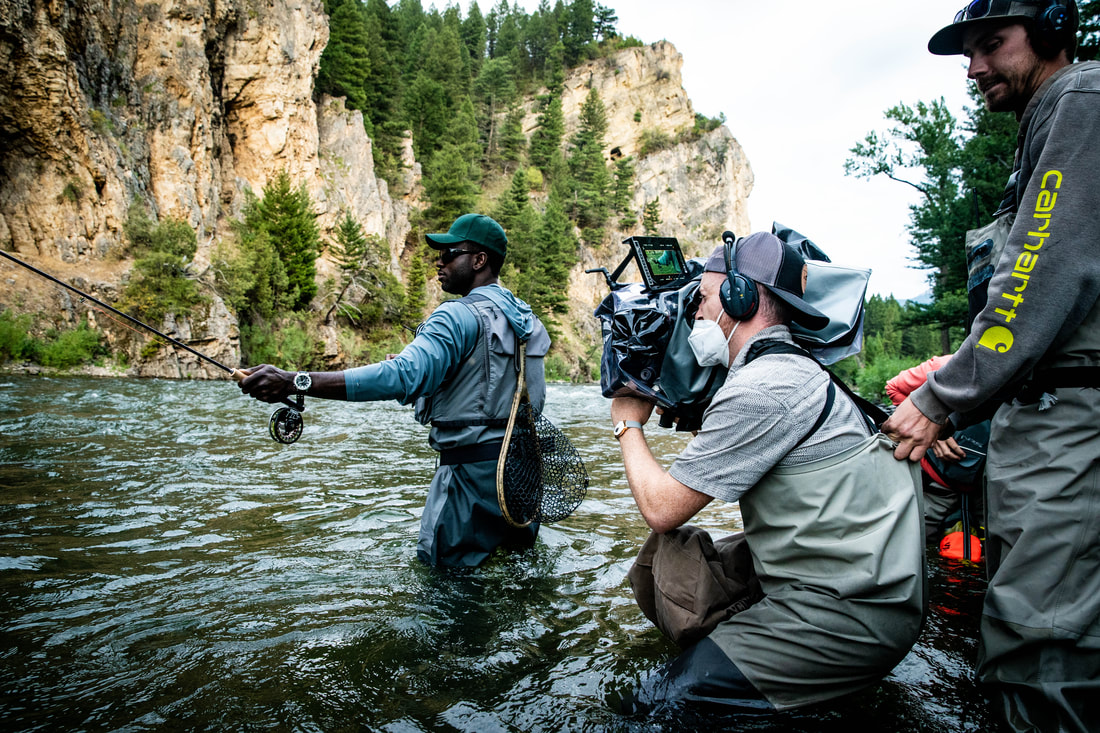
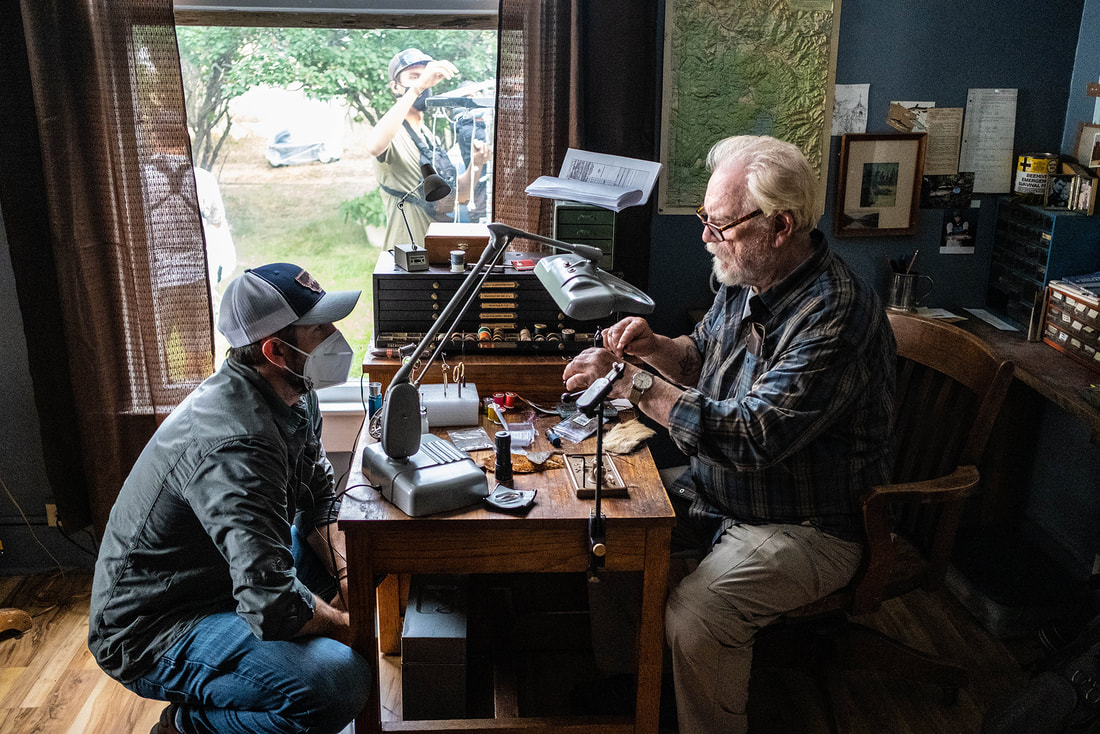
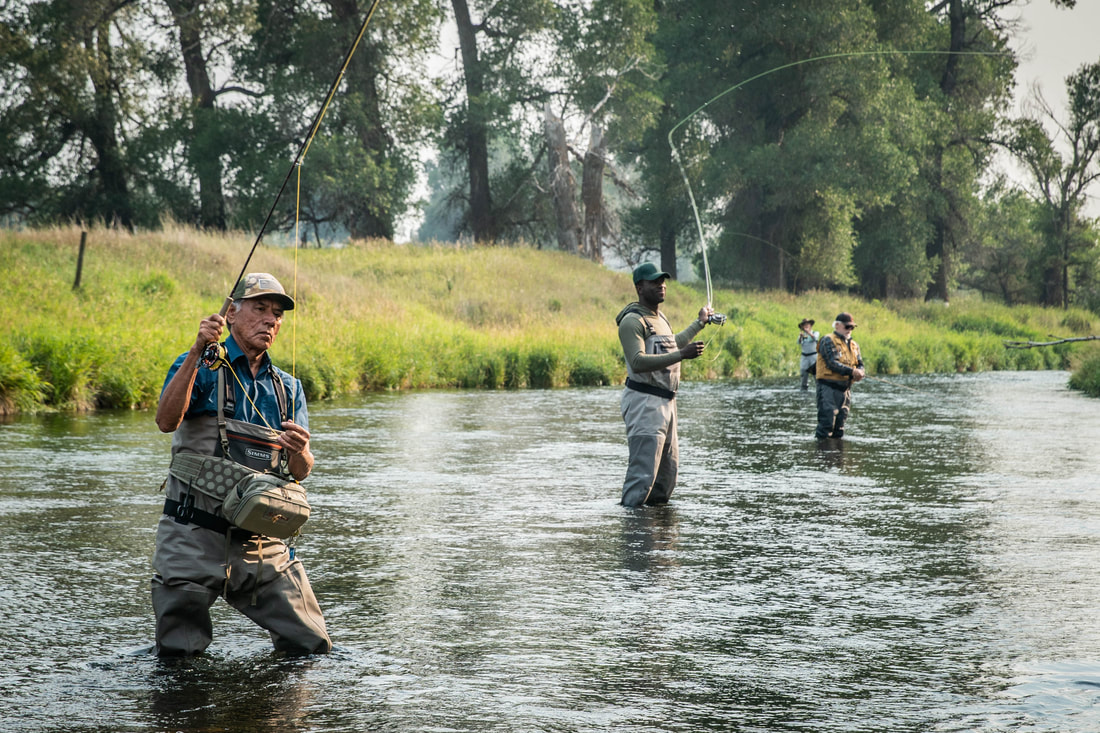
 RSS Feed
RSS Feed